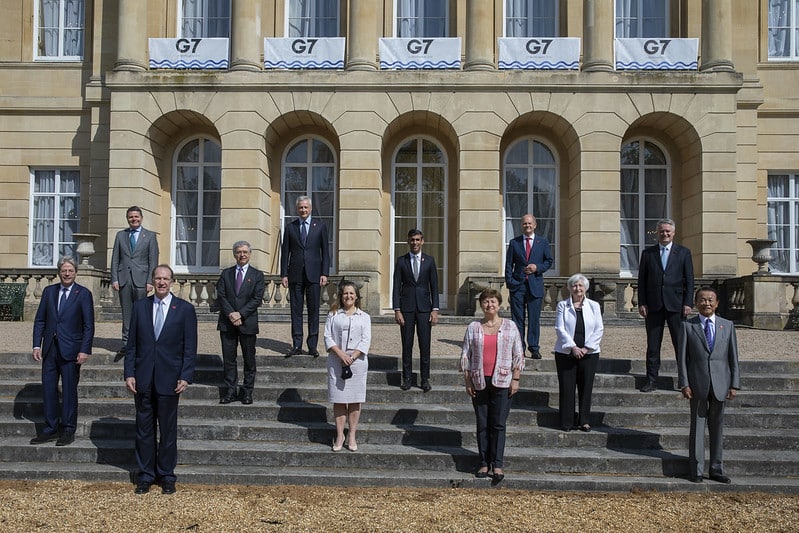"A tipping point", "historic agreement", and a "sweeping overhaul of global tax system": last weekend, on 5 June, the finance ministers of the G7 countries reached an agreement on a minimum tax rate of 15% for companies. For years, the risk of a 'race to the bottom' has been lurking, with countries competing with each other with ever lower taxes and ways to avoid tax. All for a good business location climate for companies. Such a minimum tax rate is likely to stop this development. Yet not everyone is reacting positively to the agreement.
G7, G20 and the OECD
What exactly is happening internationally? On Friday, the heads of government of the G7 countries (UK, Germany, France, Italy, US, Japan and Canada) will meet in the UK, where, among other things, they will sign this tax deal. This should be followed by a broader agreement at the G20 next month. In addition, led by the Organisation for Economic Cooperation and Development (OECD), discussions are already under way with more than 135 countries to counter tax avoidance. The G7 agreement should accelerate these talks.
In all these platforms, however, it is mainly the rich, industrialised countries that have the upper hand. Not for nothing have many developing countries long advocated an inclusive process in the UN context, rather than one led by the OECD as the 'club of rich countries'.
In the words by Dereje Alemayehu of the Global Alliance for Tax Justice: "There is nothing 'historical' or a 'game changing' in this deal in terms of overhauling the outdated and unfair international tax rules. It's a déjà vu! The G7 strike a deal among themselves and pave the way for a manipulated endorsement as an international agreement in informal platforms created by their OECD, outside the UN system." According to him, developing countries risk being trapped by this kind of agreement in a system that "will continue to deny tax rights to a share of global profits generated in their economies".
The 'race to the bottom'
There are also doubts whether a minimum rate of 15% will stop the race to the bottom. Initially, President Biden (US) proposed a rate of 21%. So this was eventually reduced substantially. Many countries, including many developing countries, currently have a tariff above 15%. So unintentionally, this low tariff could actually fuel a race towards that 15%.
What is also important is how the rules will be fleshed out in the coming period. Arnold Merkies, coordinator of Tax Justice Netherlands, of which FMS is also a member, warns against this: "You need to see how much tax companies pay per country in order to calculate the minimum. But we as the public don't get any insight into that." As a network, we therefore advocate the importance of public 'country by country reporting' of companies so that it becomes clear where companies pay how much tax.
Last year calculated ActionAid already that developing countries lose up to $200 billion a year due to tax avoidance. This is much more than these countries receive in development cooperation ($150 billion a year). It is very important that the elaboration of this G7 agreement is done well, with a lot of attention to detail, so that corporate tax avoidance is made impossible. African perspectives are crucial in this elaboration. As the Netherlands and the EU, we must ensure that they have an important voice in this process.





